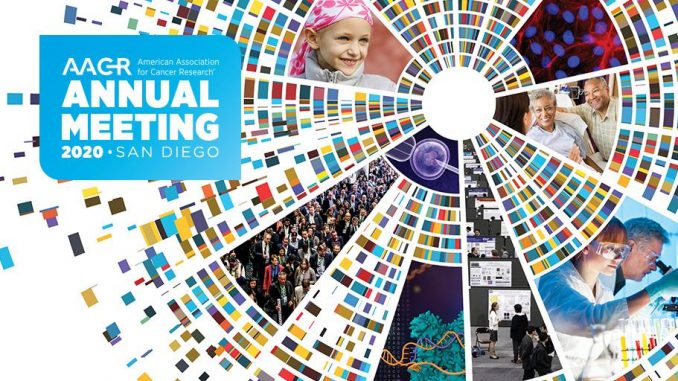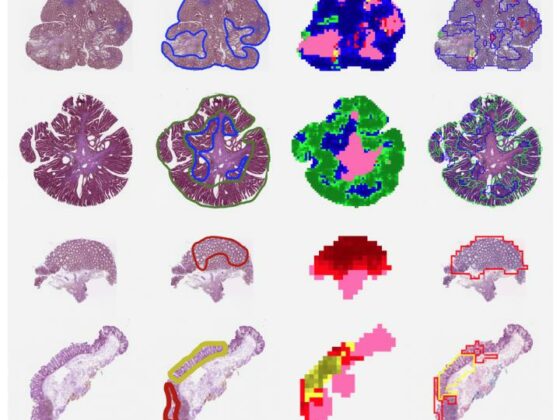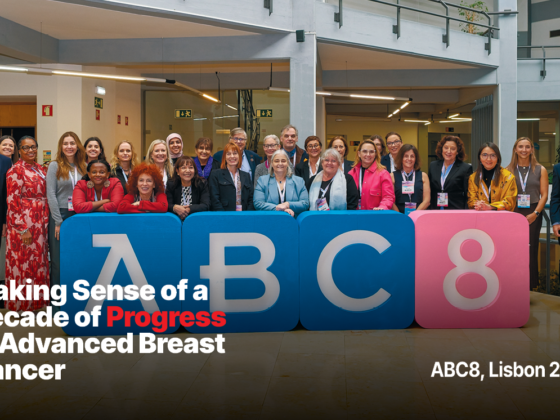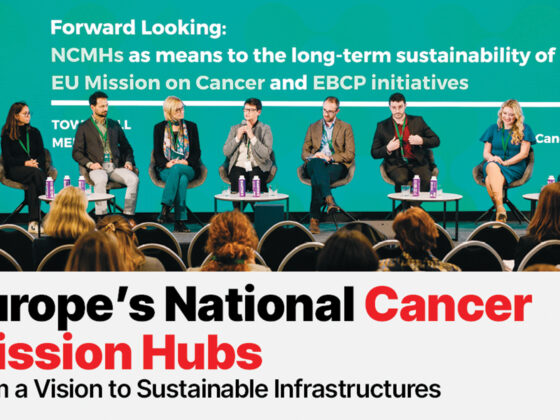It was not scheduled in the original scientific program, but as the new coronavirus pandemic has started spreading all over the world, the American Association for Cancer Research (AACR) dedicated a plenary session of its Annual Meeting to this very hot topic.
Due to the pandemic, two Virtual Annual meetings have been programmed for 2020 – the first in April 27-28, and the second to be held on June 22-24 – covering many aspects of cancer research. Despite many difficulties arising from this rapidly evolving situation, over 60.000 people registered to the sessions. “For this session we have invited physicians and scientists that have been at the epicentre of the Covid-19 pandemic taking care of patients with cancer, asking them to share their knowledge” said Antoni Ribas, UCLA Medical Center, Los Angeles, CA, Programme Chairperson of the AACR Annual Meeting 2020 and Chair of the “Covid-19 and Cancer” plenary session.
Li Zhang, Tonji Medical College, Wuhan, China, opened the session describing “The experience of treating patients with cancer during the COVID-19 pandemic in China”, the first hotspot of the pandemic. Based on the data collected in January and February 2020, she concluded that cancer patients with Covid-19 had poor outcomes and higher recurrence of clinical severe events and mortality. Moreover, data showed an increase in the risk of severe adverse events if an anti-tumour treatment was performed within 14 days before Covid-19 diagnosis.
The second presentation, from Marina Chiara Garassino, from Fondazione IRCCS Istituto Nazionale dei Tumori, Milano, Italy, was mainly focused on the new TERAVOLT (Thoracic cancERs international coVid 19 cOLlaboraTion) Registry, created to provide data for better management of patients with thoracic malignancies and more extensive understanding of the impact of this novel infection on cancer patients. “As of April 12, 2020, 160 institutions from 21 countries on every continent expressed their interest to join TERAVOLT. ESMO, IASLC and ETOP spread and supported the initiative” Garassino said. The first analysis on 200 cases suggest a mortality among thoracic cancer patients higher than in other studies, with a 34.6% death rate in this first dataset. The most common complications are pneumonitis and acute respiratory distress syndrome (ARDS). In the large majority, death is attributed to SARS-CoV2 infection and not to cancer. Many patients were not admitted to intensive care units (ICU) probably because of shortage or institutional rules. No comorbidities emerge as significant determinants of higher risk of death, nor specific anticancer treatment, even if recent chemotherapy seems to be a risk for major complications. The study has some clear limits, like a short follow-up and a selected population that doesn’t reflect the vast majority of thoracic cancer patients but offers nonetheless some clues for the clinician. “Don’t walk alone. It’s now important to create a network to have very quick responses” Garassino added to invite all oncologists to join the main registry instead of setting up their own.
Later on, Fabrice Barlesi, Gustave Roussy Cancer Campus, Villejuif, France, described the Gustave Roussy experience during the SARS-CoV-2 outbreak which led to a new way of managing cancer patients with the main aim to protect them from the infection and from losing the chance to be treated properly. Opposite to other presenters, Barlesi concluded that the incidence and the outcomes were comparable in cancer patients and the general population. “Frail patients, those with haematological diseases and those with advanced disease treated with cytotoxic chemotherapy within 3 months deserve special attention” he said, highlighting the importance of participation in clinical trials.
The Spanish picture of Covid-19 and Cancer came from Carlos Gomez-Martin, Octubre University Hospital, Madrid, Spain, describing the measures put in place in the Centre from March 6th. Among those measures, on-site active screening, limits on the number of outpatient visits, specific isolated wards for suspected cases and dedicated staff to attend Covid-19 infected patients 24/7. “Until data from randomized trials including cancer patients are available, diagnosis and treatments must be carried out according to the standard of care” he concluded, focusing the attention to the need of a multidisciplinary team to manage cancer patients during the pandemic.
In his presentation, Paolo A. Ascierto, Istituto Nazionale Tumori IRCCS Fondazione Pascale, Naples, Italy went into the details of cancer treatments describing his “Experience in using oncology drugs in patients with COVID-19”. He started his speech claiming that “to keep safe both patients and health workers is the most important rule” and describing all the reorganizational measures adopted in his cancer centre. Going deeper into the details of cancer treatments, he mentioned the so call cytokine storm, often observed in Covid-19 infection and deserving a prompt treatment. “Many drugs can target this hyperinflammation, especially anti-IL6, and are showing promising results in Covid-19 patients” he clarified while mentioning TOCIVID-19, an ongoing Italian study on tocilizumab with very positive preliminary results, and other trials using sarilumab.
Louis P. Voigt, Memorial Sloan Kettering Cancer Center, New York, NY, made a sort of U-turn, completely changing the perspective. “COVID-19 and cancer: Flattening the curve but widening disparities”. In a few-minute speech, he put the spotlight on racial and social disparities that can influence the health outcomes in cancer patients, even more during the pandemic. “Pandemic creates perfect conditions for suboptimal care or deviation from the standard of care with a major impact on the most vulnerable patients. We need a most robust safety net for those patients and the time for action is now” he concluded.
Hongbing Cai, Zhongnan Hospital of Wuhan University, Wuhan, China, presented the results of a multicenter study including 105 cancer patients and 536 age-matched non-cancer patients with confirmed Covid-19, the first large cohort study comparing these two groups. The analysis showed that Covid-19 patients with cancer had higher risks in all severe outcomes (death, intensive care unit admission, severe/critical illness and invasive ventilation). The frequency of adverse events was particularly high in patients with haematological and lung cancers and in those with metastatic cancer and lung metastasis.
A 15 minutes discussion closed this data-crowded session. To make a long story short, what emerged from presentations and final considerations is that the knowledge of the virus and its impact on cancer patients’ management is still poor and many questions are yet to be answered. Does the immunotherapy increase the risk of Covid-19 infection or is it protective? Which is the most dangerous treatment for cancer patients in the pandemic era? Are there differences among cancer types in terms of susceptibility to and prognosis after Sars-CoV-2 infection?
“We urgently need data from randomized control trials” Ribas said in the closing remarks of the session and inviting the virtual attendees to the second part of the AACR Virtual Annual Meeting and to the Covid and Cancer conference scheduled for July.












2 comments
Comments are closed.